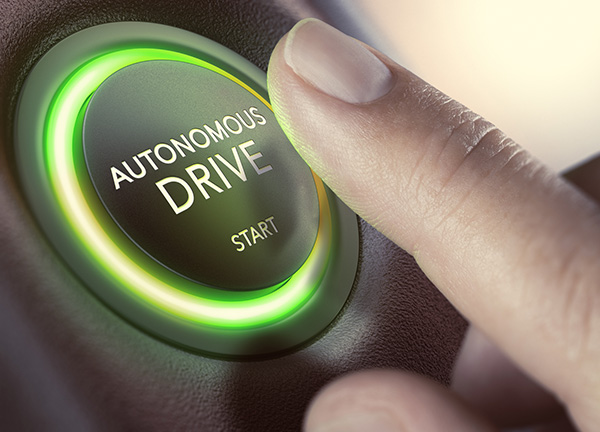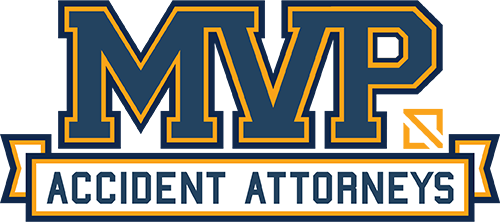
Are you safer in a self-driving car than when you drive yourself?
California is one of the most progressive states when it comes to autonomous vehicles, and this raises issues around liability and safety.
Automakers and technology companies are racing to develop autonomous vehicles that can drive themselves. The technology exists, but a vehicle that does not require human supervision is not yet legal in the United States.
As of 2020, there are 29 states that have laws related to autonomous vehicles. These states are:
| Alabama | Arkansas | California | Colorado | Connecticut |
| Florida | Georgia | Illinois | Indiana | Kentucky |
| Louisiana | Maine | Michigan | Mississippi | Nebraska |
| New York | Nevada | North Carolina | North Dakota | Oregon |
| Pennsylvania | South Carolina | Tennessee | Texas | Utah |
| Virginia | Vermont | Washington | Wisconsin |
There are executive orders issued by governors in Arizona, Delaware, Hawaii, Idaho, Illinois, Maine, Massachusetts, Minnesota, Ohio, Washington, and Wisconsin. (source)
Autonomous vehicles are expected to have a significant impact on the transportation industry beyond what we’re already seeing. By 2030, there will be over 50 million vehicles on the road. This means that driverless cars will make up nearly 25 percent of all cars on the road.
As technology evolves, safety considerations and laws need to change in order to accommodate a developing industry.
California autonomous vehicle laws
The California Department of Motor Vehicles (DMV) sets forth the history of autonomous vehicles, beginning in December, 2015. Following a series of workshops and draft regulations, the state Office of Administrative Law approved driverless testing regulations in 2018.
California was one of the first states to not only allow, but encourage, the development of autonomous vehicles. A bill passed in 2012 was the mechanism that first allowed testing self-driving vehicles. Since then, California has strengthened laws regulating the use of these vehicles. In addition, in 2019, the state approved regulations for testing and deploying autonomous delivery vehicles that weigh fewer than 10,001 pounds. These vehicles are now permitted on public roads.
Development of autonomous vehicle use across the nation
Waymo is the entity formerly known as the Google autonomous vehicle unit. The company is now expanding its testing program to the San Francisco area, with plans to launch commercial rides later this year.
John Krafcik, the head of Waymo’s driverless vehicle program, said that the company is testing hundreds of self-driving cars on public roads around the city. It’s part of a pilot program that will eventually allow riders to hail an autonomous car in a similar way as hailing a taxi.
Driverless vehicles are also being developed by Ford Motor Co., General Motors, and Tesla. Uber offers a ride-hailing service that allows a person who does not have a driver’s license to rent a vehicle through the app for a cost of approximately $1 per mile.
In addition to Tesla's autopilot self-driving feature, General Motors has been testing semi-autonomous vehicles with a driver on board in San Francisco. Zoox has been conducting a limited number of rides in Phoenix, where it is also testing its robo-taxis on the city's streets.
Zoox partners with existing ride-hailing services like Uber and Lyft, whose human drivers will take over if a vehicle has an emergency or problem. These vehicles are fitted with cameras and sensors that detect accidents or traffic problems in order to allow the driver to take over where necessary.
Autonomous vehicle collision statistics
The National Highway Traffic Safety Administration (NHTSA) reports that there were nearly 400 accidents over 11 months involving vehicles that use automated technology. Of those accidents, there were 11 reported serious injuries and 98 total injuries. Five accidents involving Tesla vehicles resulted in fatalities.
The majority of these accidents were in Florida, California and Arizona.
Are autonomous vehicles safer than driver-controlled vehicles?
Autonomous vehicles can be safer because they have a lot of sensors and cameras that include radar, optical, and ultrasonic sensors. Other safety features include:
-
- Full self-driving capability, which would allow the driver to take their hands off the steering wheel at any point during the trip. Autopilot will still be active in this mode but won't stop when there's no driver or when the self-driving mode is engaged.
-
- Autopilot is an advanced driver-assistance system that provides an added layer of safety. It automatically adjusts speed and steering in many situations, keeping the vehicle on course and helping stay within the lane. In addition, autopilot comes with 360 degrees of visibility and radar, so the driver can always see what's in the rear, even while driving in heavy rain or other weather conditions.
-
- Machine learning algorithms are used to improve their performance over time. They also use GPS data from a vehicle's previous trips to predict where it will go.
- Advanced detection systems can detect pedestrians, cyclists, other vehicles and even objects like construction equipment that could cause an accident. They can also detect potentially hazardous situations like a tree falling from high above or debris on the road ahead.
Autonomous vehicle companies look to make cars safer
Although the safety features exist and are currently in use, there are always ways to improve. Some of them sound like science fiction, like sensors to detect hazards when a driver isn’t paying attention, but they’re real—and they help.
There are also questions about whether regulations that would allow a vehicle to drive without a human driver would make everyone safer on the road. Perhaps having roads entirely navigated by technology, which would eliminate human error, could benefit us all. Companies like Nvidia and Daimler have already debuted this technology in Europe.
However, as autonomous vehicles become more common, the laws will evolve, too. Specifically, there will be issues about liability that will need to be established. If you’re involved in an accident with a driverless car, who pays for injuries? The driver? The manufacturer?
Right now, some of these questions remain unanswered. However, if you’re in a car accident that involves an autonomous vehicle, the team of lawyers at MVP can help. We’re on top of the latest legislation and will help you determine the best course of action to recover damages.
Author

Brett Sachs
Brett S. Sachs graduated from Michigan State University College of Law with Cum Laude Honors. While attending Michigan State, Brett was awarded for his service in the Michigan State University College of Law Civil Rights Clinic, where he represented prisoners of the Michigan Department of Corrections from injustices brought upon them. Learn more.
Top-Rated Lawyers

Lizbhett Rodriguez
Jason Acosta

When You’ve Been Injured
Personal Injury Law

